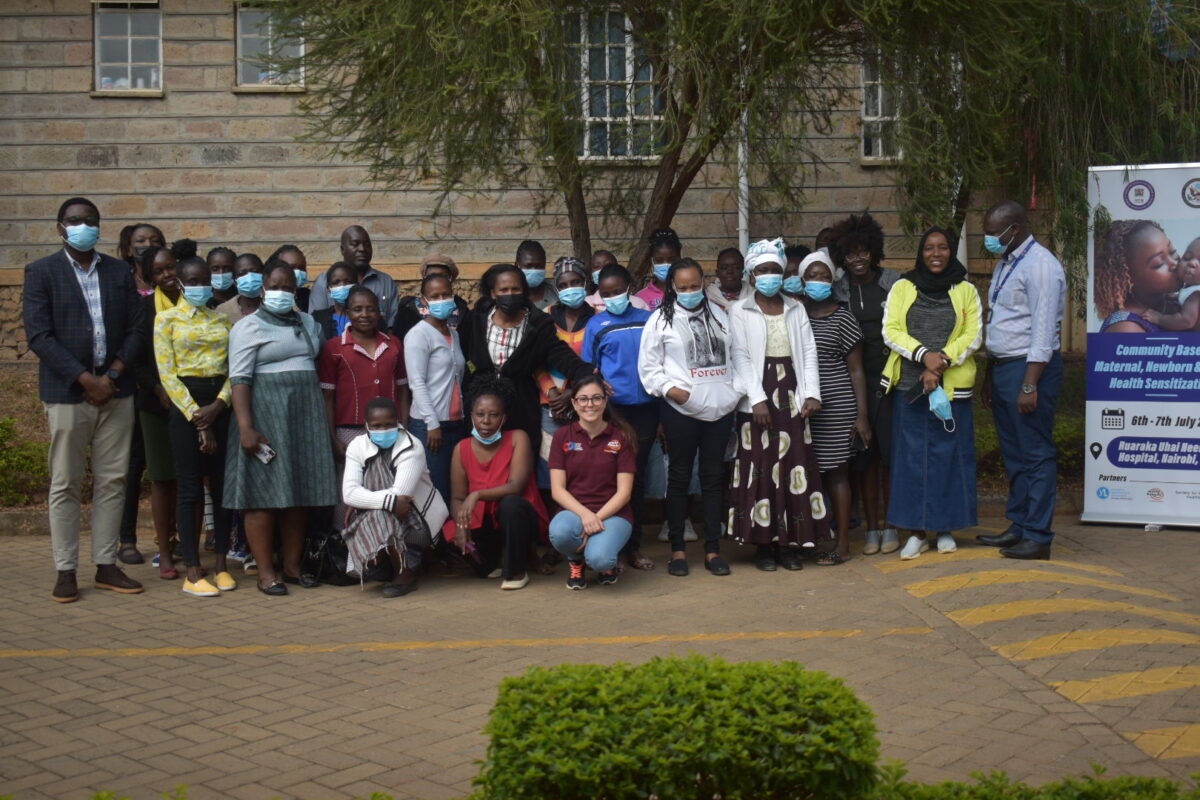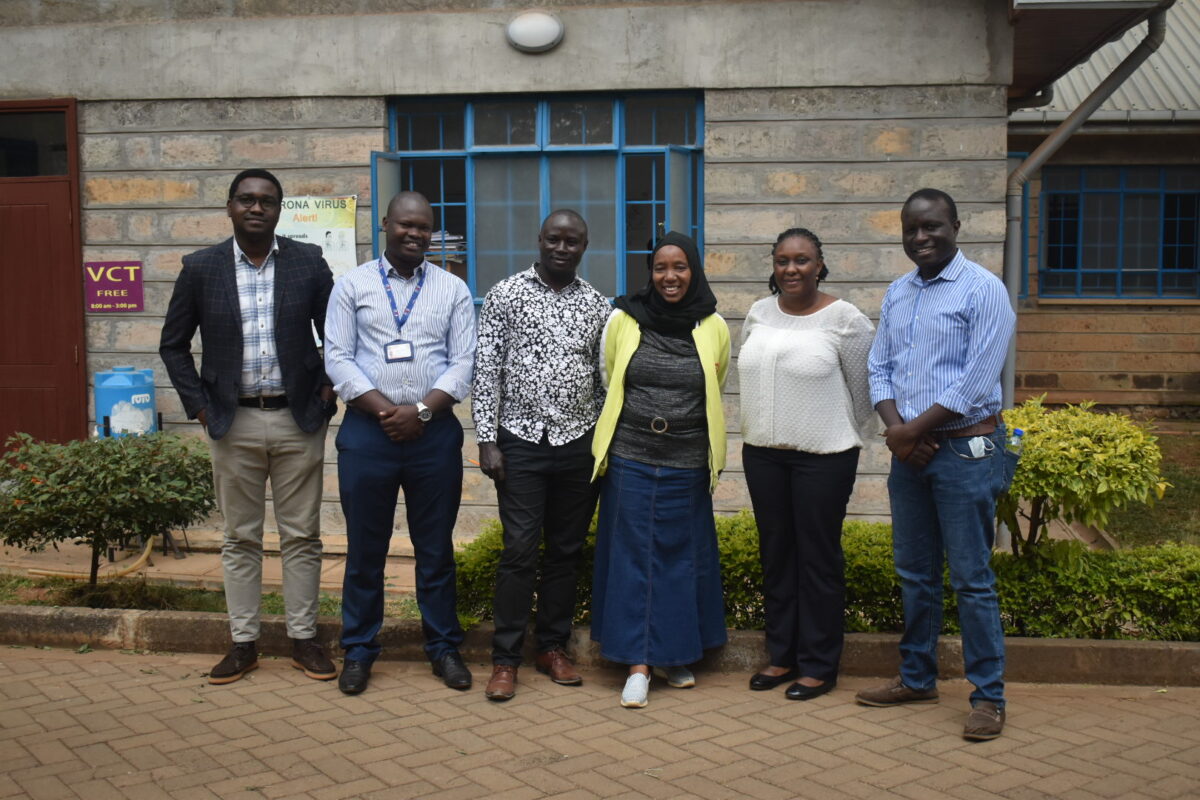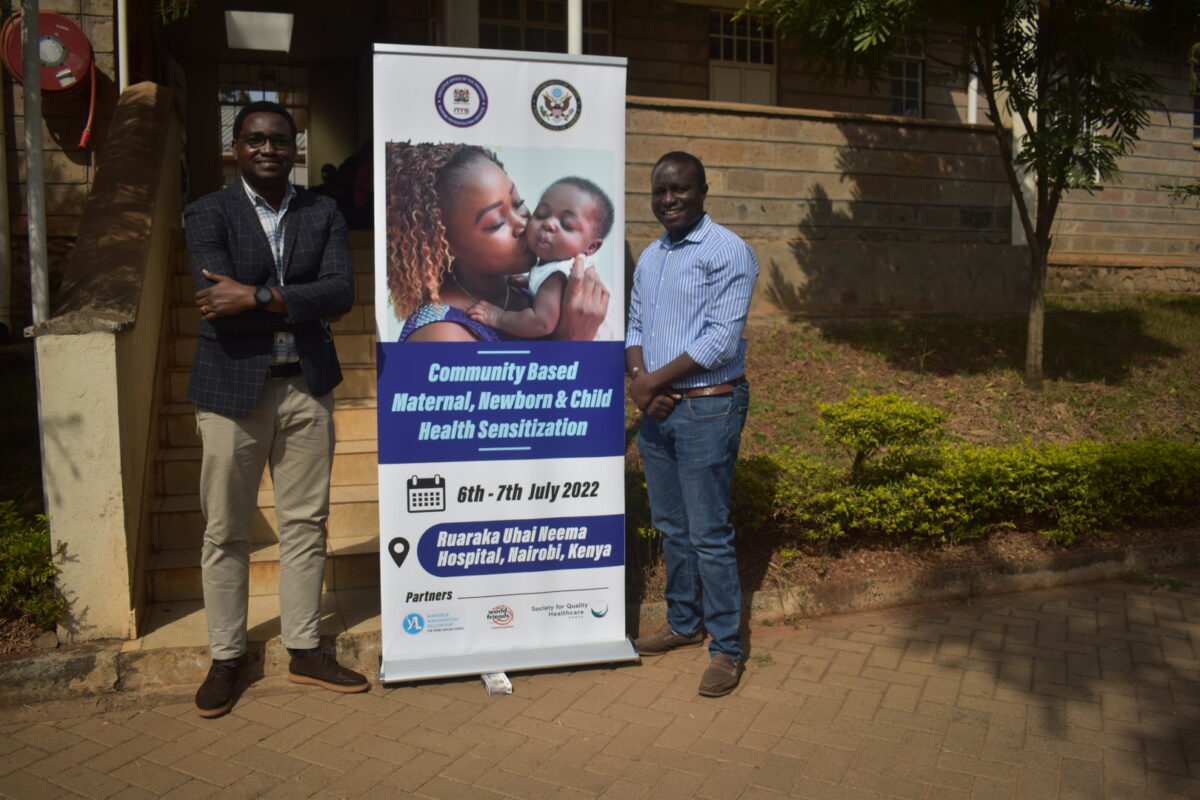Promoting Community-Based Maternal, Newborn, and Child Health in Kenya
According to the United Nations, over 800 women around the world lose their lives to preventable complications from pregnancy and childbirth each day, and more than half of these deaths take place in Sub-Saharan Africa. Mandela Washington Fellowship Alumni are combining their relevant expertise and collaborating to address maternal mortality in their communities.
2018 Fellowship Alumni Dr. Obinna Orjingene of Nigeria—a maternal–newborn child health and nutrition consultant at UNICEF—and Dr. Caleb Mulongo of Kenya—a medical doctor working to improve health access in low-income communities—both desired to make a difference in the low-income community of Ruaraka Sub-County, an area northeast of Nairobi. Informal settlements, like the ones in Ruaraka, experience high levels of poverty, limited access to health information and health care, among other social and health challenges.
Building the capacity…through appropriate training, robust supervision and effective linkage and referral systems can help improve population health outcomes.”
Caleb Mulongo, 2018 Fellowship Alumnus, Kenya
In his role with UNICEF, Obinna strengthens the Nigerian health system as a consultant on maternal and infant health. Caleb is a senior medical officer and co-founder of The City Cardiac Centre and ProHealth Technologies. Through these organizations, he provides affordable healthcare and health education and utilizes mobile solutions for health promotion. With Obinna’s expertise in maternal and infant health and Caleb’s expertise in health education, the two decided to collaborate through the Fellowship’s Leveraging Innovations in New Communities (LINC) Grants to educate vulnerable women on improving maternal health in Ruaraka, Kenya.

Both Obinna and Caleb recognized that those best positioned to educate and support expectant mothers are those closest to them, such as civil society stakeholders at the community level and community health volunteers, community members who work or volunteer with the local health care system in urban and rural environments. In collaboration with Caleb, Obinna travelled to Kenya and together they trained these stakeholders as volunteers to provide health services in their local communities.

Working with a range of stakeholders—nonprofit organizations, health organizations, and public health officials within the Nairobi Metropolitan Services’ Directory of Health—Obinna and Caleb provided training to thirty community health volunteers from across the Ruaraka area. The two-day training workshop included hands-on learning opportunities to deepen the participants’ understanding of maternal care during and after pregnancy. These women will impact the lives of 600 women and their families in the coming months, adding tremendous value to the community and the larger health system.
Through shared strategic partnership and collaboration, the LINC Grant has provided a platform that will enable sub-county health officials in northeast Nairobi to leverage the improved competence of the community health volunteers towards promotive and preventive healthcare for women and children living in low-income communities. This will invariably contribute to a reduction in maternal and newborn mortality in Kenya.

Their LINC Grant funding provided Obinna and Caleb the resources to address the need for intervention in Ruaraka and to onboard the relevant public sector and civil society partners. There is already interest from the Directory of Health to expand the workshops to other community health volunteers operating in Ruaraka.
“Building the capacity of CHVs through appropriate training, robust supervision and effective linkage and referral systems can help improve population health outcomes,” said Caleb.
Written by Onyinyechi Ekeanyanwu. Edited by Abbie Wade.
Next Story
Marie Christina Kolo
2017 Fellowship Alumna, Madagascar